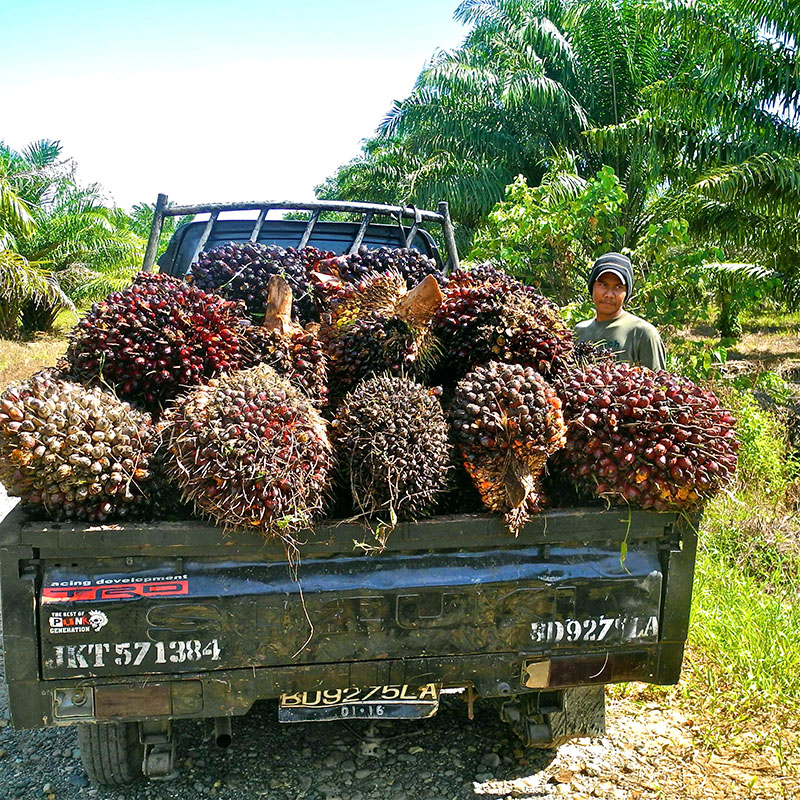- Blog
- Sustainable Economic Systems
- With recent deforestation pledges, eyes on next steps
With recent deforestation pledges, eyes on next steps

Donate Now!
Your contribution will benefit Friends of the Earth.
Stay Informed
Thanks for your interest in Friends of the Earth. You can find information about us and get in touch the following ways:
Last week, Yum! Brands, the company that owns KFC, Taco Bell and Pizza Hut, announced a zero deforestation policy for its sourcing of palm oil, to ensure the palm oil the company’s restaurants use to fry foods will no longer be linked to rainforest destruction and human rights abuses. The policy sets a December 2017 target for establishing safeguards for palm oil sourcing. Just days prior to the Yum! Brands announcement, industrial agricultural giant Archer Daniels Midland also buckled to consumer and shareholder pressure and issued its own pledge to “Zero Deforestation,” covering both its palm oil and its soy supply.
The announcements represent a welcome acknowledgment by the world’s largest food producers of their role in causing deforestation, habitat destruction, labor abuses and associated climate impacts. Such policies have positive ripple effects in the market and in raising awareness of the tremendous environmental destruction caused by agribusiness.
These pledges, however, are only as good as their implementation on the ground. We look forward to seeing Yum! Brands and ADM join the new “race to the top” as global consumer companies take steps to turn their policies into action.
The implementation of these policies must also be part of a broader effort to protect human rights and reduce wasteful consumption, or it can cause a range of other problems. While the rapid deforestation of the tropics must be stopped, a narrow focus on deforestation without an accompanying reduction in industrial expansion tends to push production onto lands considered to be “marginal” or to have low conservation value — lands where economically and politically marginalized people often live. Recent violent landgrab conflicts, including the murder of an environmental activist in Indonesia, are sadly illustrating this trend. In Uganda, farmers have been evicted from their lands as Wilmar International, itself under a policy of No Deforestation, No Exploitation, claimed them for palm plantations in a joint venture with the Ugandan government. With our grassroots network in 75 countries, Friends of the Earth and its partners will be watching to ensure that getting first world consumer companies out of the frying pan of forest destruction does not merely fuel the fire of land grabs and other threats to local livelihoods.
As the recent International Forum for Agroecology in Nyeleni, Mali, declared, the real solutions to our ecological crises will not come merely from reforming industrial agriculture, but from building sustainable local food systems as the means to transform food production altogether, and from putting land in the hands of people, not corporations.
Commitments from the nation’s leading food retailers are an important step in recognizing the destructive impacts of their palm oil sourcing. Now, other actors need to step up: the banks and asset managers that finance destructive palm oil production also need to commit to “zero deforestation and zero exploitation” in their financing. Blackrock, Vanguard, DFA, JPMorganChase, CalPERS and other leading asset management firms and pension funds continue to finance destructive palm oil companies through their investments, with no transparent processes in place for eliminating harm.
And, while voluntary commitments are welcome, industry must not be left to monitor its own social and environmental impact. Governments must institute policies that hold corporations and their financiers accountable for the social and environmental impacts of their activities, in order to truly bring about just and lasting transformation.
Image: Workers load oil palm fruits onto a truck in Indonesia
